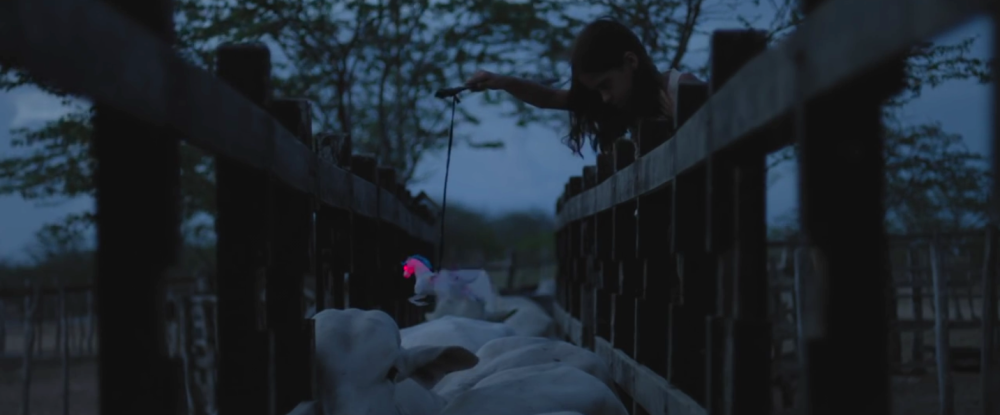Introduction: Reframing Humans, Animals and Land in Contemporary Brazilian and Argentinian Cinema
May 6, 2019
Dana Khromov

Boi Neon (Gabriel Mascaro 2015)
Representations of the rural have been central to the construction of national identity in Latin American cinema since its inception, serving as the alternately utopian, premodern, uncivilized, and rebellious counterpart to modern urban centers. Where classic films like O Cangaceiro (Lima Barreto, Brazil 1953) represented rural areas as the folkloric and mythical origins of the nation, Cinema Novo’s Glauber Rocha called for an “aesthetics of violence” that didn’t idealize or primitivize the social and economic struggle concentrated in these spaces but rather, incited anti-colonial uprising to combat it. Contemporary filmmakers return to these spaces to interrogate the very notions of modernity, rurality and subjectivity at the foundations of national identity. As global capitalism’s time-space compression and reduction of humans, animals and land to their exchange value makes the dualisms that oppose nature to culture, rural to urban, premodern to modern, and mythical to historical increasingly difficult to sustain, these filmmakers use spaces like the Argentine interior and the Brazilian sertão as grounds to speculate on social and political reconfigurations that arise from the detritus of capitalism's logocentric order. In their films, described as “cine neorregionalista” by Latin American Studies scholar Jens Andermann, pastoral fantasies of the rural are dispelled by images of places excluded from the nation-state and/or devastated by socioeconomic and ecological extraction, whose inhabitants exist in the liminal space between extinction and survival.
This series of essays explores cinema’s capacity to draw attention to questions of subjectivity, temporality, and desire through representations of shifting notions of humans, animals and land in spaces on the margins of the nation-state where all three are subject to the extreme precariousness that marks neoliberal capitalism. Its authors consider how experiments in form and genre interrogate subjective notions of time and space to challenge the foundational constructs of modernity, from the nature/culture binary to distinctions between human and animal and gender norms. In the first essay, Sebastián Figueroa considers the connection between loss of love and loss of land through the narrative dialectic between a scientific state perspective and a subjective one in Viajo Porque Preciso, Volto Porque Te Amo (Brazil 2009). This entry also includes an audio recording of my conversation with the film's director Marcelo Gomes earlier. Ashley Brock's essay follows, exploring how Lisandro Alonso’s films engage duration and self-referentiality to interrogate questions of temporality and meaning in rural and urban spaces. Next, Valeria Meiller looks at how interspecies companionship and a sustainable engagement with the environment are constrained by structures of oppression and marginality in La mujer de los perros (Laura Citarella and Verónica Llinás, Argentina 2015). In my contribution, I look at how Gabriel Mascaro’s Boi Neon (Brazil 2015) employs the erotic to reframe the human relationship to animals and challenge the separation of labor time from leisure and private space from public. Finally, Fábio Andrade considers how agribusiness becomes a synonym of state-sponsored violence, displacement, and erasure in the film Ava Yvy Vera (Genito Gomes, Valmir Gonçalves Cabreira, Jhonn Nara Gomes, Jhonaton Gomes, Edina Ximenes, Dulcídio Gomes, Sarah Brites, Joilson Brites, Brazil 2016).
Read the series here:
